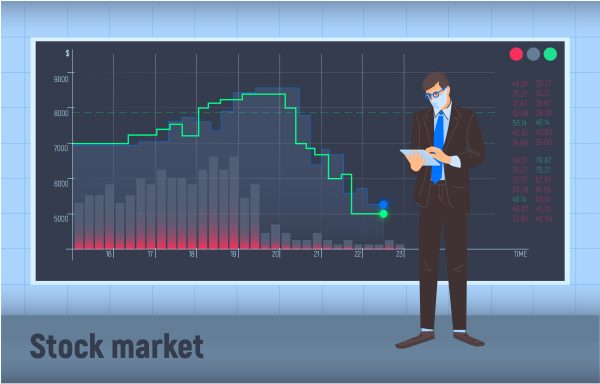On Tuesday, April 20th, 2023, Asian stocks dropped as investors became increasingly worried about a potential interest rate hike. This anxiety was particularly evident in China, which led the losses, and is part of a broader trend of volatility in global markets.

The Shanghai Composite index fell by 1.5%, and the Shenzhen Composite index dropped by 2.5%. These declines followed a drop in the S&P 500 in the United States, which fell by 0.7% on Monday, April 19th. This decline was partially attributed to concerns over rising inflation, which has led some analysts to speculate that the US Federal Reserve may raise interest rates sooner than previously anticipated.
This fear of rising interest rates has had a knock-on effect on Asian markets. In addition to the declines in China, the Nikkei 225 in Japan fell by 0.8%, the Hang Seng index in Hong Kong fell by 1.1%, and the Kospi in South Korea fell by 0.9%.
Investors are particularly concerned about the impact of rising interest rates on the global economic recovery. The COVID-19 pandemic has had a profound impact on the global economy, and central banks have responded by lowering interest rates to stimulate growth. However, as the global economy begins to recover, there is a risk that inflation could rise, leading central banks to raise interest rates in response.
While rising interest rates can be a sign of a healthy economy, they can also lead to a tightening of credit and a slowdown in economic growth. This is particularly concerning in countries like China, where the government has already been taking steps to rein in lending and prevent a potential financial crisis.
The Chinese government has been particularly active in trying to manage its economy in recent months. In addition to tightening lending standards, it has also cracked down on the country’s tech sector, which has led to a significant decline in the share prices of some of China’s largest tech companies.
This has contributed to a broader trend of volatility in global markets. Investors have been on edge as they try to assess the impact of rising inflation, the potential for interest rate hikes, and geopolitical risks such as the ongoing tensions between the US and China.
Despite this volatility, many analysts remain optimistic about the prospects for the global economy. While there are certainly risks on the horizon, there are also many factors that could support continued growth, such as the rollout of COVID-19 vaccines, continued government stimulus measures, and strong corporate earnings.
However, investors will need to stay vigilant in the coming weeks and months. The situation is likely to remain fluid, and there are likely to be both ups and downs in the markets as investors try to digest new information and assess the potential impact on the global economy.
Overall, the current decline in Asian markets is a reminder that there are still many risks facing the global economy. However, it is also a reminder that markets are inherently unpredictable, and that investors need to be prepared for volatility in order to succeed in the long run.





